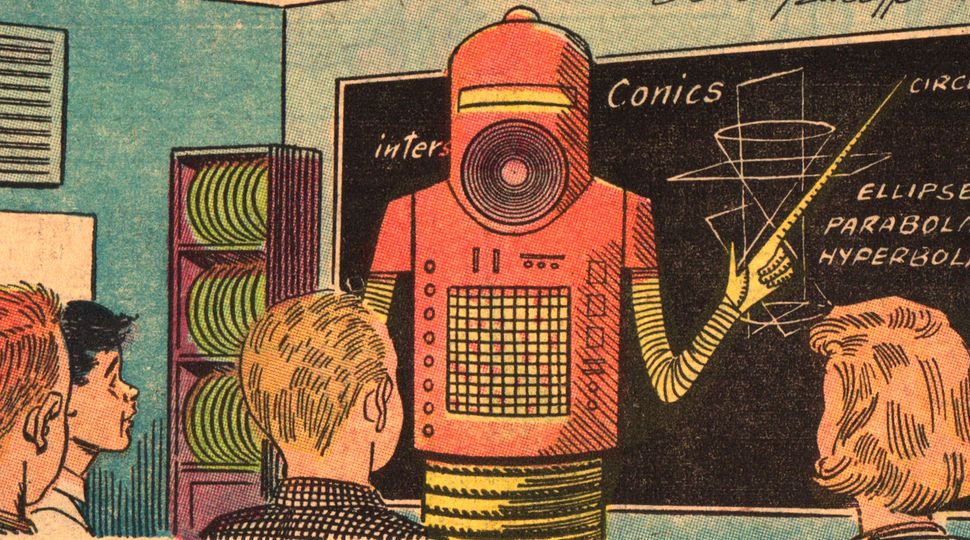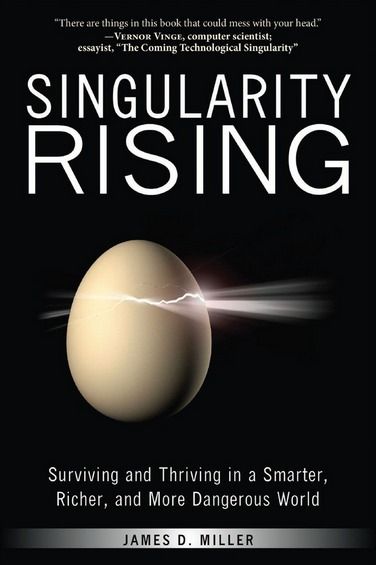Jan 20, 2014
EmoSPARK | The First Artificial Intelligence Home Console — Official Release
Posted by Seb in category: robotics/AI

By John Frank Weaver — Slate

Harvey Milk famously advised his “gay brothers and sisters” to come out, but “only to the people you know, and who know you.” He understood the power of human empathy. It is hard to hate people you know and who know you.
We’ll soon see how human empathy shapes the design of artificial intelligence because, as it turns out, our empathy is so strong we will consider objects people if we can interact with them like people. Her played with this idea in a future where Joaquin Phoenix’s Theodore falls in love with his operating system, Samantha. But right now on Indiegogo, you can contribute to EmoSPARK, “the first artificial intelligence console committed to your happiness.”
John A. Rogers, University of Illinois

Fitness buffs are going gaga for gadgets like the Fitbit Flex and Jawbone UP — for now. Although the stylish rubber bracelets can monitor heart rate, sleep patterns and other vital signs, and even display them on a smartphone, John Rogers thinks wearable health can do better.
Today’s often clunky self-health trackers are “just hanging there,” said Rogers, a professor at the University of Illinois at Urbana-Champaign. As a result, they only measure a handful of biological functions. “We want to go for more sophisticated, clinical quality measurements in ordinary daily life. Being intimately in contact with the skin is the only way to do it.”
The Economist

IN 1930, when the world was “suffering…from a bad attack of economic pessimism”, John Maynard Keynes wrote a broadly optimistic essay, “Economic Possibilities for our Grandchildren”. It imagined a middle way between revolution and stagnation that would leave the said grandchildren a great deal richer than their grandparents. But the path was not without dangers.
One of the worries Keynes admitted was a “new disease”: “technological unemployment…due to our discovery of means of economising the use of labour outrunning the pace at which we can find new uses for labour.” His readers might not have heard of the problem, he suggested—but they were certain to hear a lot more about it in the years to come.
Cory Doctorow — Boin Boing

Some Bitcoin enthusiasts have announced a new project called Bitcloud. The idea is something like the old Mojo Nation P2P architecture, in which individual Internet users perform tasks for each other — routing, storage, lookups, computation — in exchange for very small payments.
The Bitcloud protocol uses Bitcoin-style accounting to allocate those microtransfers, along with Bitcoin-style proof-of-work (they call it “proof-of-bandwidth”) and the authors suggest that the potential for profit by individual members will create enough capacity to replace a large number of centralized commercial services (“Youtube, Dropbox, Facebook, Spotify, ISPs”) with “distributed autonomous corporations,” that obviate the need for centralized control in order to supply anonymous, robust, free services to the public.
Brooks Barnard — Android and Me
I think I’m a pretty healthy guy. I eat well. I exercise. No real serious health problems. But about a half a year ago my life changed in a big way. I had no idea that at the ripe old age of 28 one could be diagnosed with type 1 diabetes, but there I was at the doctors office with a blood glucose level that was through the roof and a no longer working pancreas.
I’m now insulin dependent. Type 1 diabetes can’t be controlled by diet and I need to check my blood sugar levels several times a day and give myself insulin injections to make sure my levels are acceptable. If it goes too low, I run the risk of passing out and dying. If I run too high for long periods of time I run the risk of all sorts of health issues down the line including lost digits and limbs. So as you can see, it’s in my best interest to closely monitor and control my blood sugar levels. In practice, treating type 1 diabetes is a giant balancing act that involves carb counting and needles and any new technologies available could make a huge difference to those affected by the disease.

Every generation has its shiny new technology that’s supposed to change education forever. In the 1920s it was radio books. In the 1930s it was television lectures. Here in the second decade of the 21st century, it seems the Massive Online Open Course (MOOC) is the education tech of tomorrow. Let’s hope it pans out better than previous attempts.
Today we take a look back at 15 technologies that were supposed to radically change the way that people are educated around the world. Some innovations were mostly hype. Others had an undeniably meaningful impact.
I don’t consider myself as someone with nostalgia for the past. Certainly the past is fascinating and worth studying – historically, archaeologically, astronomically, etc. – but I don’t consider it worth pursuing again, all while abandoning everything we’ve achieved thus far. I reach to the stars, though keep a distant memory of what I’ve learned in the past.
One of my fears, however, as we continue journeying into the exponentially brightening light of the future, is that we – as a global, interconnected community – lose sight of the reasoning why we’ve taken up the future rather than the past. I advocate abandoning neither the future, nor the past. Reason being because the past plays an important role in shaping our future. We lose sight of the past, we may just lose sight of our present and future.
While I fear I may be at err for quoting such a dooms-dayer publication, George Orwell’s famous book Nineteen Eighty Four teaches the lesson, “He who controls the past controls the future. He who controls the present controls the past.” Orwell is the last person I’d prefer learning lessons from, but in this respect he’s correct.
 James D. Miller’s Singularity Rising is an interesting starter book for proto-transhumanists and will be a must have book for all transhumanists interested in rational and scientific approaches to transhumanism. Along with Singularity Hypotheses and The Transhumanist Reader, Singularity Rising will find a home as part of introductory courses on transhumanist ideas and transhumanism. H+ readers and others familiar with transhumanist and singularitarian scene will recognize the views presented here from publications of the Machine Intelligence Research Institute (MIRI formerly known as the SIAI) and followers of Eliezer Yudkowsky and the LessWrong community.
James D. Miller’s Singularity Rising is an interesting starter book for proto-transhumanists and will be a must have book for all transhumanists interested in rational and scientific approaches to transhumanism. Along with Singularity Hypotheses and The Transhumanist Reader, Singularity Rising will find a home as part of introductory courses on transhumanist ideas and transhumanism. H+ readers and others familiar with transhumanist and singularitarian scene will recognize the views presented here from publications of the Machine Intelligence Research Institute (MIRI formerly known as the SIAI) and followers of Eliezer Yudkowsky and the LessWrong community.The Future of Spage-Age Management, Today! by Mr. Andres Agostini at http://lnkd.in/d7zExFi

This is an excerpt from the conclusion section o, “…The Future of Spage-Age Management, Today!..,” that discusses some management strategies. To read the entire piece, just click the link at the end of article:
BEGINNING OF EXCERPT.
Mr. David Shaw’s question, “…Andres, from your work on the future which management skills need to be developed? Classically the management role is about planning, organizing, leading and controlling. With the changes coming in the future what’s your view on how this management mix needs to change and adapt?…” This question was posited on an Internet Forum, formulated by Mr. David Shaw (Peterborough, United Kingdom) at http://lnkd.in/ba6xX-K on October 09, 2013.
This P.O.V. addresses practical and structural solutions, not onerous quick fixes. THIS P.O.V. WILL BE COMMUNICATED UNAMBIGUOUSLY AND EMPHATICALLY.
Continue reading “The Future of Spage-Age Management, Today!” »
